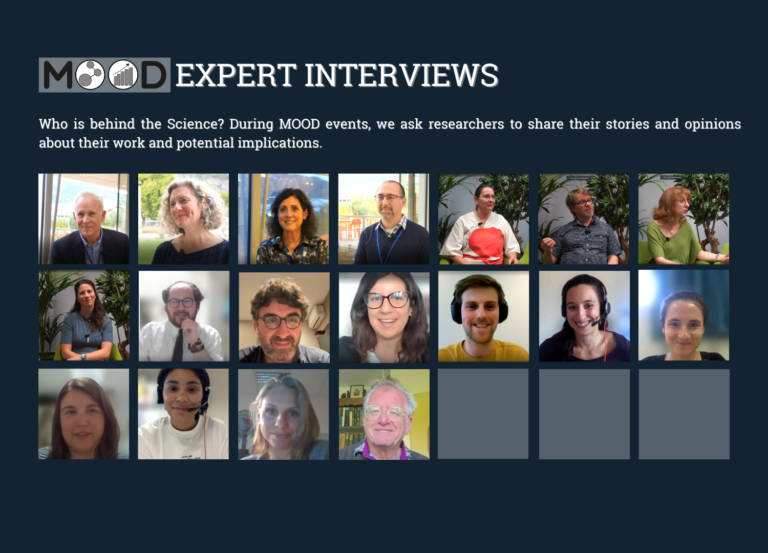
Expert interviews from the International Workshop in Trento, Italy in September 2022
Expert interviews from the MOOD Science Webinars
Expert interviews from MOOD Scientific Conference, Helsinki, in June 2023
On June 27th 2023, the MOOD project organized a flagship event around “Innovations to face disease emergence in the era of climate change: from research to technological development” at the Finnish Institute for Health and Welfare in Helsinki, Finland. This one-day scientific program will examine the current stakes and future research initiatives and collaborations needed to address epidemic intelligence for emerging infectious diseases from a data perspective. The event offered a broader view of the future challenges for Public Health, focusing on the need to implement a “One Health” approach and exploring the innovations to improve the surveillance of emerging infectious diseases in a changing climate.
The scientific program featured scientific talks from the MOOD partners, as well as presentations from related projects and initiatives, to explore the new frontiers of research and technological innovations, networks, and collaborations relevant to the early detection of signals of disease emergence and rapid risk assessment using multi-source Big data and data on drivers of disease emergence including human movements and climate change. More information and complete schedule here.
During this event, 4 experts granted us interviews. Discover them bellow.

